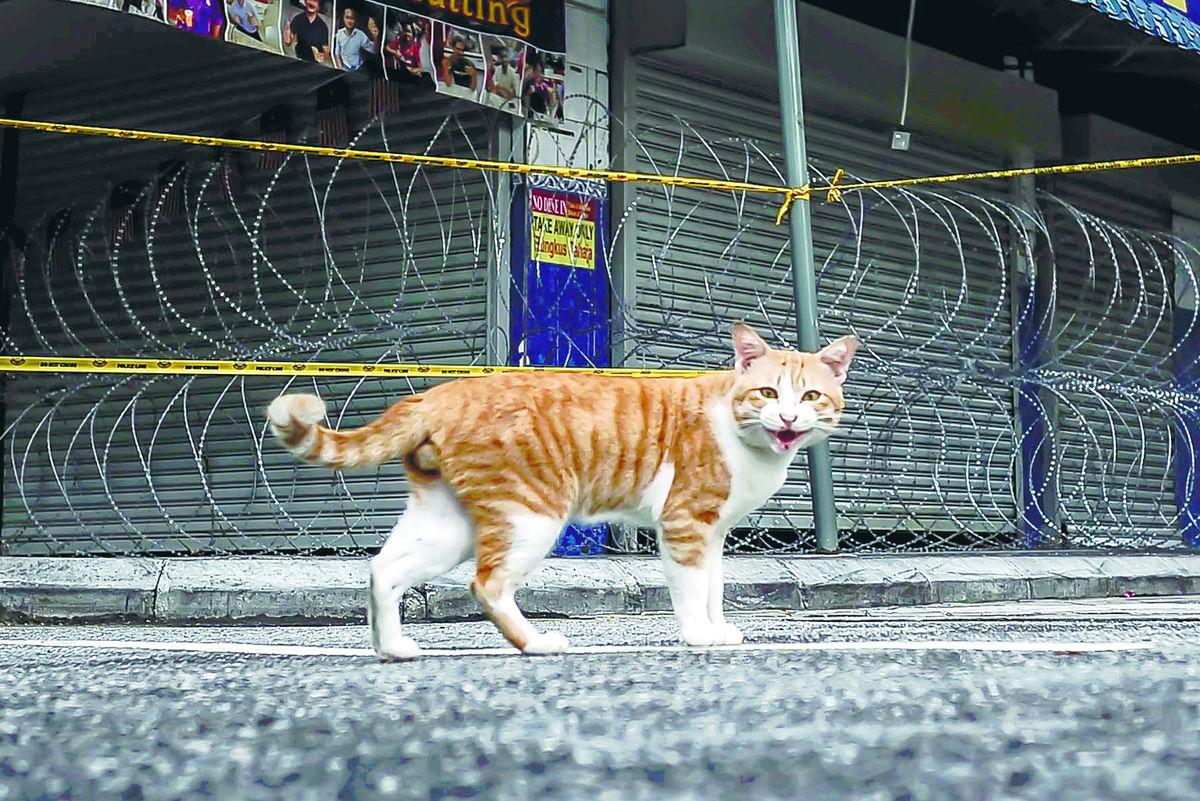IN a country as beautifully diverse as Malaysia, where different races, religions, and cultures intertwine, one might ask: what is the true essence of our unity?
While food, sports and national pride are often celebrated as unifying elements, an equally profound yet overlooked force is emerging – the compassionate movement to save and protect stray animals.
Across the nation, from bustling Kuala Lumpur to quiet kampungs, Malaysians of all backgrounds are coming together to rescue, foster and advocate for strays. This shared concern transcends ethnic and religious divides, demonstrating that kindness to animals is a universal value.
Recently, I visited a veterinary clinic in Shah Alam, bringing my two rescue kittens, Ainoon and Maimoon, for their first cycle of vaccination.
As I waited, I noticed two brothers, who had also brought in four kittens. Their mother cat had passed away due to heart and lung failure – a harsh reality of stray life. Feeling compelled to care for the kittens, they named them Razali and Grey, though the other two names slipped my mind. Initially, they intended to find homes for them but their mother had grown too attached to let them go.
In another touching scene, an elderly couple arrived with a stray cat that had taken refuge at the back of their home. The cat bore bite marks, a sad consequence of territorial fights among unfixed male strays. If untreated, such wounds could become infested with maggots, leading to a painful death. With deep compassion, the couple brought the cat in for medical care, determined to ease its suffering.
About a few weeks ago, my husband and I saw a cat with a name tag, Ayu Ting Ting, roaming among the parking lots at SS13, Shah Alam. Thinking that she was lost, I approached her, hoping to find a phone number etched on the name tag. Instead, I had the biggest laugh as the tag read her name along with a caption: “Jangan tengok je, wetpud 1”.
A tom yam eatery was actually looking after her. They had taken her and her kittens in and were collecting donations to neuter her and other stray cats. Ayu Ting Ting had three kittens, but only one survived, and she is currently nursing three orphaned kittens. The eatery had even prepared a special area for her to nurse them, showing how businesses can play a role in animal welfare.
Malaysians are also taking individual initiatives to spay and neuter stray cats and dogs. Many kind-hearted individuals have taken it upon themselves to trap, neuter and release (TNR) animals to help control the stray population humanely.
Some pay for the procedures out of their own pockets, while others organise fundraising efforts or collaborate with veterinary clinics to offer discounted rates. These small yet impactful acts of compassion show that Malaysians are stepping up to create long-term solutions for animal welfare.
A powerful example of Malaysians uniting for stray animals was the protest against the tragic shooting of a friendly stray dog named Kopi. Kopi had been a beloved presence in a local neighborhood, known for her gentle demeanor. When news spread that she had been cruelly killed, animal lovers across Malaysia came together in outrage.
People of different backgrounds voiced their condemnation, organised vigils, and demanded justice. The movement sparked conversations on stricter animal welfare laws and brought the community closer together, showing that kindness and justice for animals are a cause that resonates deeply with Malaysians.
Social media has played a pivotal role in uniting Malaysians for this cause. Platforms like Facebook, Instagram and TikTok have become rallying points for rescuers and adopters.
Groups such as Persatuan Penyayang Kucing Malaysia and My Forever Doggo showcase heartwarming stories of rescued animals finding loving homes. The comment sections of such posts often reveal an outpouring of support from Malaysians of all backgrounds, proving that love for animals knows no racial or religious boundaries.
Beyond individual efforts, saving strays has led to the rise of volunteer groups and NGOs dedicated to animal welfare. These organisations, often made up of multiethnic volunteers, collaborate to TNR animals, provide vaccinations, and run adoption drives.
Events organised by these groups see Malaysians from different walks of life working together – whether it is a Malay woman handing over a rescued puppy to a Chinese adopter or an Indian teenager volunteering alongside an elderly uncle of another race. The shared effort fosters a deeper understanding and appreciation of one another.
Local businesses and eateries are also getting involved, setting up food stations for strays and encouraging customers to contribute.
Even religious institutions, traditionally cautious about animal-related initiatives, are beginning to recognise the value of kindness to all creatures.
Some mosques and temples have started feeding stray cats, reinforcing the belief that compassion is a universal principle.
While the movement to save strays is growing, challenges remain. Stricter animal welfare laws, responsible pet ownership, and stronger enforcement against abuse are necessary to make lasting change. However, the grassroots movement driven by ordinary Malaysians shows that unity is possible through acts of kindness.
By saving a stray, we not only give an animal a second chance at life, but also build bridges among communities, fostering a Malaysia that is not just diverse but compassionate and united in action.
After all, when we look into the eyes of a stray in need, do we see race, religion, or background? No. We see a life worth saving, and that is what truly brings us together.
“Compassion for animals is intimately connected with goodness of character; and it may be confidently asserted that he who is cruel to animals cannot be a good man.” – Arthur Schopenhauer
Comments: letters@thesundaily.com









